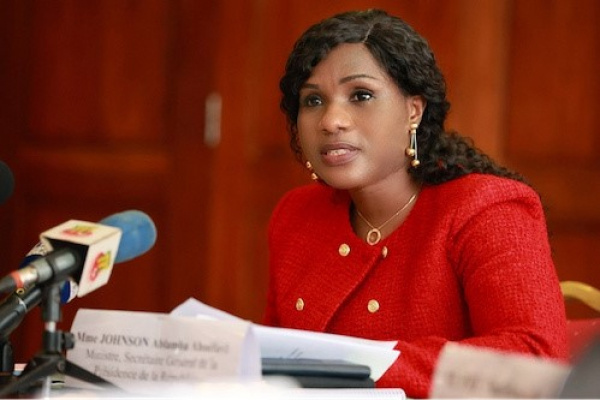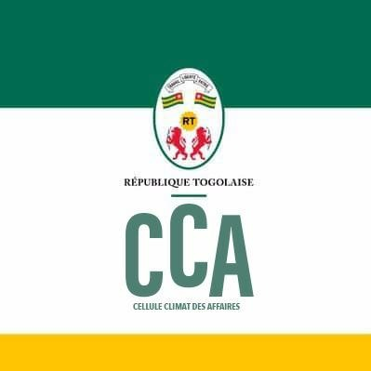Covid-19: In Togo, the health crisis birthed digital and socio-economic innovation, according to Sandra Johnson

(Togo First) - Covid-19 has been an unparalleled health and socio-economic challenge for Togo. The claim was made last week by Sandra Ablamba Johnson, Minister, Secretary-General of the Togolese Presidency.
According to Faure Gnassingbé's collaborator, the health crisis has prompted Togolese authorities to design and develop new social policies to boost social protection and the resilience of economic actors and households to exogenous shocks. “The crisis has served as a laboratory for socio-economic and digital innovation with the establishment of a universal solidarity income to help citizens deprived of income-generating activities,” she wrote in an op-ed.
One of the initiatives of the government Johnson referred to was the Novissi digital platform. With it, the government distributed 13.3 billion CFA francs to 820,000 people as mobile money transfers. “This action, combined with other economic support measures financed by the state, has enabled Togo to avoid a recession that many considered inevitable,” the official noted.
Deployed only a few weeks after the pandemic broke out in the country, in April 2020, the Novissi cash transfer scheme was a success, according to Sandra Johnson. This success “demonstrates the opportunities that digital transformations for inclusion offer,” added the woman who also heads Togo’s business climate.
The project, she stressed, will serve “as a milestone for further advances, such as biometric identification, which will provide a digital identity to all Togolese to ensure universal health coverage and access to basic social and financial services.”
According to Sandra Ablamba Johnson, Lomé's response strategies have enabled the Togolese economy to record positive growth of 1.8% in 2020 and to reach 5.3% in 2021.
Esaïe Edoh

















